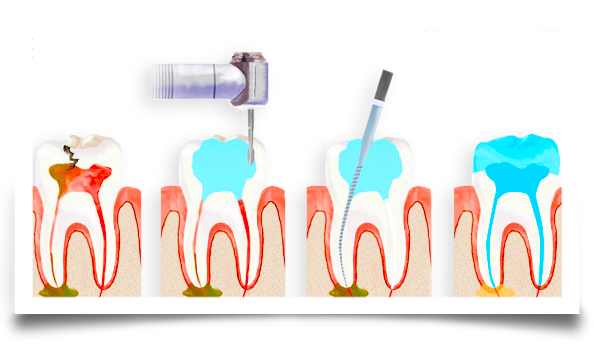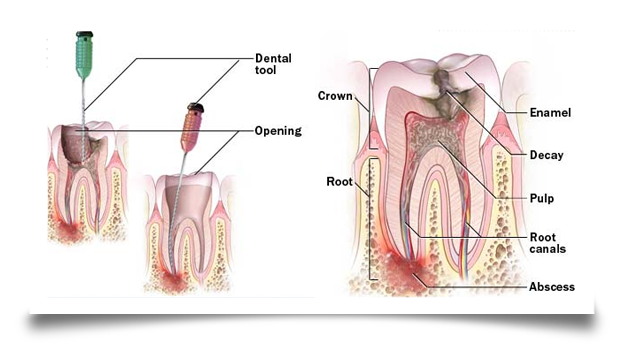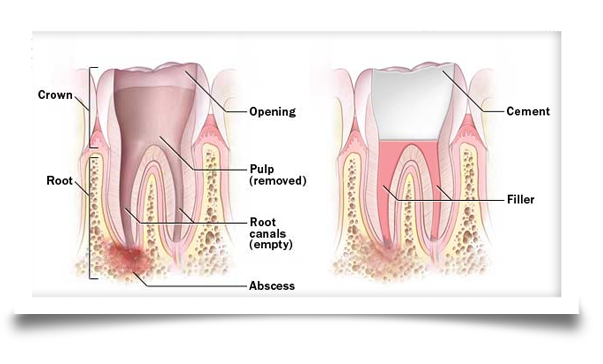Expert Root Canal: Painless Care for Healthy Teeth
When it comes to dental health, many people fear the words “root canal” due to outdated misconceptions about pain and discomfort. However, modern dentistry has transformed the root canal procedure into a highly effective and virtually painless treatment. Root canals are designed to save damaged or infected teeth, restoring oral health and preventing the need for tooth extractions. In this article, we will explore how expert root canal treatments offer painless care, ensuring your teeth remain healthy and functional for years to come.
What is a Root Canal?
A root canal is a dental procedure that removes infected or damaged pulp tissue from inside a tooth. The pulp contains nerves and blood vessels that keep the tooth alive, but once it becomes infected due to decay, trauma, or deep cavities, it can cause severe pain and swelling. During a root canal, the dentist carefully removes the infected tissue, cleans the inner tooth, and seals it to prevent further infection.
Why is a Root Canal Necessary?
A root canal becomes necessary when the tooth’s pulp is compromised. If left untreated, the infection can spread to surrounding tissues, leading to abscesses, bone loss, and even systemic health problems. Root canals are essential for preserving the natural tooth, which is always preferable to extraction. By keeping your natural teeth, you maintain better chewing ability, jaw strength, and alignment of your teeth.
Is a Root Canal Painful?
One of the most common concerns surrounding root canal treatments is pain. Fortunately, advances in dental technology and anesthesia have made this procedure virtually painless. Most patients report that having a root canal feels similar to getting a regular filling. The dentist will administer a local anesthetic to numb the area, ensuring you feel little to no discomfort during the treatment.
Modern Techniques for a Pain-Free Experience
Expert dentists use modern techniques and state-of-the-art equipment to make the root canal procedure as comfortable as possible. Rotary endodontics, for instance, utilizes electric-powered instruments that are more precise and less invasive than traditional hand files. This reduces treatment time and enhances comfort. Additionally, advancements in digital imaging allow for better diagnosis and treatment planning, ensuring optimal results.
What to Expect During a Root Canal
If you are scheduled for a root canal, it’s helpful to know what to expect. The procedure typically involves the following steps:
- Anesthesia: The dentist will numb the area with a local anesthetic to ensure you are comfortable throughout the procedure.
- Access to the Pulp: A small opening is made in the tooth to access the infected pulp tissue.
- Pulp Removal and Cleaning: The damaged pulp is removed, and the inner tooth is cleaned and shaped to prevent reinfection.
- Filling and Sealing: After cleaning, the dentist fills the root canals with a biocompatible material and seals the tooth to protect it from future infections.
- Final Restoration: In most cases, a crown is placed over the treated tooth to restore its strength and function.
Post-Procedure Care
After your root canal, you may experience mild soreness or sensitivity for a few days. This is normal and can be managed with over-the-counter pain relievers such as ibuprofen. Be sure to follow your dentist’s post-procedure instructions, including avoiding hard or sticky foods that could damage the temporary filling. Within a few days, any discomfort should subside, and you can resume normal activities.
Benefits of a Root Canal
Choosing a root canal over-extraction offers numerous benefits. Saving your natural tooth helps preserve your smile’s appearance and function. Additionally, root canals have a high success rate, and with proper care, the treated tooth can last a lifetime. You also avoid the need for more costly and invasive procedures like dental implants or bridges.
Preserving Natural Teeth
One of the main advantages of a root canal is that it preserves your natural tooth. This helps maintain the alignment of your teeth and the integrity of your jawbone. Unlike artificial restorations, a natural tooth feels and functions like a regular tooth, allowing you to chew and speak comfortably.
Cost-Effective Solution
A root canal is often more cost-effective than tooth extraction followed by a replacement, such as a dental implant or bridge. Preserving your tooth reduces the need for future dental work, saving you both time and money in the long run.
Conclusion
Root canals are a vital dental procedure that can save your natural teeth, offering a pain-free and effective solution for tooth infections and damage. Thanks to modern techniques and expert care, a root canal can be completed comfortably, ensuring your teeth remain healthy for years to come. If you are experiencing tooth pain or have been advised to undergo a root canal, rest assured that it is a safe and effective way to restore your smile.You can reach us at 847.740.4600 and 847.986.6682.
Call Now to Request Emergency Root Canal Treatment Cost
847.740.4600
$100 off root canal treatment
- Comfort 99%
- Overall Satisfaction 100%
- Price 35%
Does a Root Canal Treatment Procedure Hurt?
Why is root canal treatment necessary?
What are typical symptoms of root canal infection?
How does endodontic treatment save my tooth?
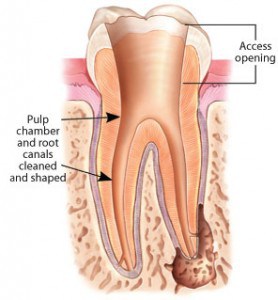
A small opening in the chewing surface of your tooth is created to gain access to the pulp. Very small instruments are used to remove dead and dying tissue and clean the pulp from the inside, allowing the root canals to be cleaned and disinfected. The canals are specially “shaped” and prepared so that they can be sealed with biocompatible filling materials. They are coated with an adhesive cement to ensure that they are completely sealed to prevent future infection.
It is becoming increasingly common today for root canal specialists to use microscopes for these intricate and detailed procedures to make the cleaning and shaping process more precise and efficient.
What can I expect following the procedure?
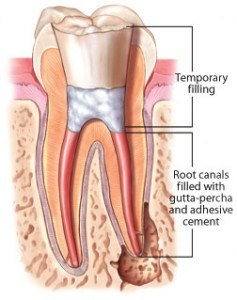 before the procedure. Most discomfort can be relieved by over-the-counter (OTC) medication like aspirin or ibuprofen. If you have discomfort or pain that lasts more than a few days or if there are other increasing symptoms, call your dentist. Prescription medications including antibiotics may be indicated.
before the procedure. Most discomfort can be relieved by over-the-counter (OTC) medication like aspirin or ibuprofen. If you have discomfort or pain that lasts more than a few days or if there are other increasing symptoms, call your dentist. Prescription medications including antibiotics may be indicated.
You should not chew or bite on the treated tooth until you have seen your dentist, particularly if part of the tooth has been lost to decay, a large filling or trauma. A crown or other restoration is usually needed to further protect and restore the tooth to full function and is extremely important in ensuring long-term success. Contact your dentist as soon as possible to arrange for any necessary treatment.
